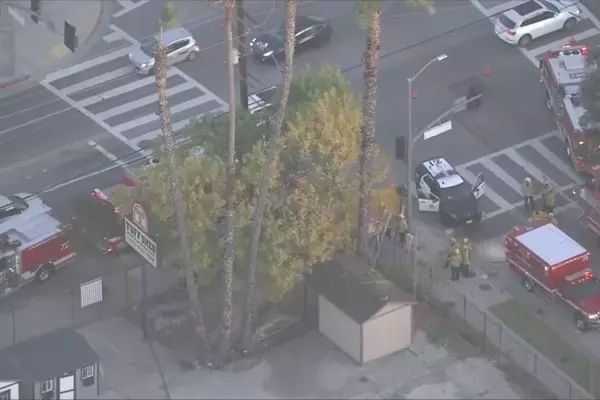
There have been moments this year when both sides in the interminable rail dispute have made positive sounds, suggesting a resolution could be close. But as Mick Whelan, leader of Aslef, holds forth from his desk at the train drivers’ union HQ, it becomes clear this is not one of them.
Pay talks have foundered and Whelan is fuming at the rail firms and the government, whose “dead hand” he sees as sabotaging progress: “I’ve never dealt with such dissembling, deceitful, disingenuous, dishonourable people in my 38 years of operating on all levels of this industry.”
Aslef, which traditionally has been less inclined to strike than sister rail union RMT, is now at the forefront of the battle. Drivers will strike on 12 May, the eve of the Eurovision final in Liverpool, as well as on 31 May and FA Cup final day, 3 June – a set of dates that has led ministers and tabloids to accuse Whelan of targeting Ukrainians watching Eurovision and spiking the two Manchester teams’ day at Wembley.
Whelan denies both, although perhaps objects more strenuously to the Ukraine accusations; he breaks briefly into song for the chant London teams love to direct at Manchester United fans: “You only live round the corner!”
His office in Clerkenwell is cluttered with the paraphernalia of a Chelsea fan, albeit one leading an internationalist and socialist organisation. Old match tickets and a Chelsea gnome sit on his desk beside a book on Julian Assange; pennants of campaigns supporting Colombian political prisoners and Ukrainian rail workers hang in front of a calendar stuck on July 2012, when Whelan was in his first year as general secretary.
He’s been busy since. These days, Whelan has been cast as a man who can decide if the trains will run – although, he says, it is furious members who are pushing him harder. Two “risible” sub-inflation offers have taken the union by surprise, lower rises than even those offered to the RMT and with demands for seven-day working on top. “4% and 4% – I don’t think I could sell that even if it was a straight deal,” he says.
Like the RMT, Whelan claims that negotiators have rowed back from verbal offers to written proposals that knowingly breached Aslef’s red lines: “You would think it’s deliberate sabotage.
“They keep coming back with the same crap, knowing we’re going to refuse it. So, either they don’t want a solution, or they don’t want a solution while they’ve got other people out on strike. That’s the only rationale I can put upon it.
“We know that the pay rise they’ve offered nurses, if they take it, they’ll still be using food banks. Until the government get train drivers in the same place, I don’t think they’ll be happy.”
Train drivers, as ministers frequently point out, get paid substantially more than nurses – in no small part, ironically, due to firms competing in a scarce market after privatisation. But now they have gone four years without a rise. “The demonisation of people who actually did their duty during the pandemic, I find it quite difficult,” says Whelan. “Whatever you might think about us, we did go to work when everybody else was on Zoom.”
Left uninterrupted, he can – and does – rattle off fluent political monologues at pace, denouncing the sums given to private rolling stock firms and train operating groups, the “monsters who pillage my industry”. The young Whelan, though, fell into the sector almost inadvertently.
He grew up in Paddington, west London, born just after his parents had come to England from Ireland, and attended the same primary school on the corner of the Warwick estate as RMT leader Mick Lynch, two years his junior (although they only met through unions in the 1990s). His mother still lives in a local authority flat nearby, downsized from the council house where the family grew up.
While Whelan still owns a T-shirt saying “More blacks, more dogs, more Irish”, and ponders if references by ministers to “the two Micks” were a “dig at the Irish heritage”, he says he did not experience much direct prejudice: “I didn’t know I was poor until I went to the Oratory, because we were all poor.”
Moving to the prestigious Catholic London Oratory school, neighbouring the Stamford Bridge stadium, cemented his passion for Chelsea FC as well as furnishing him with four A-grade A-levels. But plans to go to university were dashed after his father, a bricklayer, fell from scaffolding and couldn’t work. Whelan was forced to be the breadwinner at 18, taking a job at Barclays Bank.
After a few years of banking, he had had enough and set off for a year travelling – stalling immediately in Ibiza, where he spent three months, ran out of money and came home needing to work again fast.
“The railway wasn’t on my radar, until I got into it. I enjoyed every moment of it.” He stayed a guard rather than switch to a clerical role, until a change in rules allowed him to retrain as a driver – and join Aslef. “If I’d known about rail earlier, I might have take a different route ... I might have been Steve Montgomery!”
***
Montgomery, the boss of First Rail, owner of Avanti and TransPennine Express among others, is the lead negotiator for the rail industry. It perhaps isn’t quite such an isolated joke: asked about his banking exams, Whelan suddenly fires out: “You do forget I’m a CEO, don’t you? You do forget I run a multimillion not-for-profit organisation … I do find it interesting the way people talk about trade union leaders as if we’ve got no cognisance of business. I’ve got many, many strings to what I do.”
Still, he finds time to personally enrol new recruits, as well as travelling the country meeting members. Drivers need peculiar aptitudes, he says. “They can spend nine or 10 hours alone, but in an incident can pull the red underpants over their trousers and lead 300 people to safety. It’s a very odd requirement. It can be a lonely job – some days you might not see anybody at all.”
His early career once saw him by chance driving the royal train when it derailed – although empty of royals, and due to the actions of a poorly trained signaller, rather than Whelan taking it off the tracks. This weekend, even as a son of Irish republicans who decries the “phenomenal bill” for the celebrations, Whelan says he would never have called a strike during the coronation.
He can be pragmatic – he backs Keir Starmer, despite the sacking of a shadow cabinet minister for joining a rail picket line – but will be firmly leading the 13,000 of the 22,000 drivers in his union who work for the English, government-contracted passenger operators out on strike again.
“We don’t have a choice. It’s existential for us. When I’ve asked how many years do you intend to not even give us an inflation pay rise, we haven’t had an answer,” he says.
“The government want to run us back to working 13 days on the trot. Which we won’t be doing.”
CV
Age 62
Family Married to Lorraine, retired biomedical scientist; three adult sons, two grandchildren.
Education Left school with four A-grade A-levels; took further banking exams while working.
Pay £119,000
Last holiday “Rarely takes it all” but had “a beach holiday in Turkey last summer when my wife retired”.
Best advice he’s been given “Be a general secretary”, from the candidate he defeated to win the Aslef election: “It’s a role, not a job, and while it’s a very democratic organisation, occasionally a leader’s got to lead.”
Biggest career mistake “Not joining the railway earlier.”
Word or phrase you overuse “The reality is … ”
How he relaxes “Watching Chelsea when I can, watching sport, cricket, reading, spending time with the family.”







